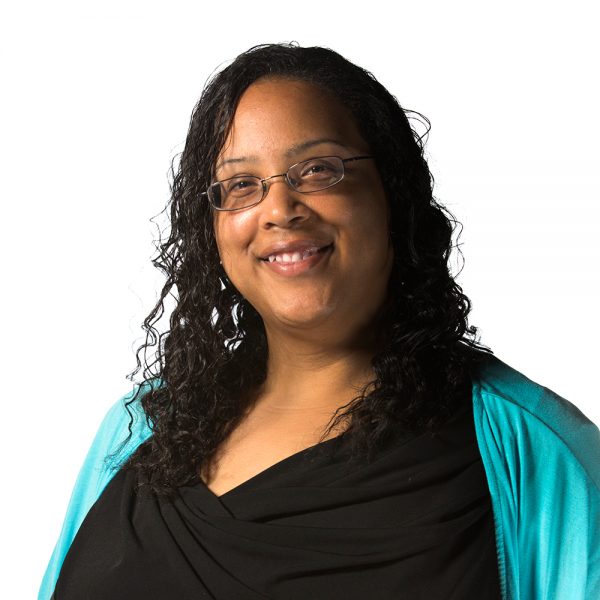
Lauren Atkins Budde is the director of Open Learning Initiatives with the Center for Academic Innovation (CAI). In her role, she oversees the strategy, support, evolution, and delivery for multiple online learning opportunities, including non-credit massive open online courses (MOOCs), free and open online learning events called Teach-Outs, short-form video content, and educational podcasts.
Tell us about your role.
I work closely with faculty from the university’s 19 schools and colleges to create and deliver educational content to the world. As the director of open content, I oversee three teams that create non-credit content that complements current U-M offerings. The content we develop can also be leveraged for residential education or online degree programs.
The first of the three teams that I manage is the Partnership Development Team which focuses on connecting with faculty collaborators and establishing partnerships with external organizations to endorse and utilize U-M content, or contribute resources to courses we’re developing. The second is the Design Management Team which is all about project and innovation management and facilitating relationships. The third is the Course Operations Team which helps build learner communities within courses, and gathers insights to inform new course design.
What do you enjoy most about your job?
I enjoy working with my teams the most. I also love working in the open education space. It’s a privilege to come to U-M, and most people won’t have that opportunity. Open education helps bring expertise to people where they are, and furthers U-M’s mission.
Education should be shared as broadly as possible. This content has helped people around the world further their goals or realize their dreams. I heard a story from one of the finance courses. An 82-year-old woman was proud of taking – and passing! – a very difficult course. She didn’t need it for a degree, but simply wanted to know more. And she proved to herself that she could.
People should feel like they belong in educational spaces. MOOCs are the right step toward increasing inclusion and breaking down barriers to education.
What are some educational resources that you recommend?
Michigan Online gives me renewed appreciation for what can be provided online. The courses are developed at U-M and provide a wide variety of topics for students, faculty, staff, and alumni to explore at no additional cost. Faculty can also incorporate these courses, or portions of them, in their residential courses. Students can take any of the courses as supplemental to their regular instruction, or go back to develop or review skills from a previous course.
The Online Teaching Academy helps faculty teach more effectively online, including best practices for developing exceptional learning experiences for online and hybrid students at U-M., including guides for just-in-time, collaborative, and peer-to-peer learning.. These resources are available for anyone across the entire university, coordinated by CAI in partnership with the Center for Research on Learning and Teaching (CRLT).
What are some up-and-coming tech tools for students?
CAI developed tools for faculty that can help personalize an authentic course experience, which is especially important as hybrid or fully remote classes are likely to continue for a while. Some examples include Problem Roulette for students to gain practice that they might not otherwise have; Tandem that helps teams in classes function more effectively; and ViewPoint that allows students to authentically simulate experiences and apply tools to real-world scenarios. Atlas is an academic planning platform that uses data to help students find or spotlights courses, build an effectively structured schedule, understand what to expect from a course, or even suggest courses.. It has the ability to look at different majors, including what other students have taken before and after a particular class, and map out a suggested path.
What is the biggest challenge you face in your work?
Our educational content is delivered at scale. That is, thousands of people could be taking any given course. It is a challenge to deliver courses to people whom you will never meet, and who have different levels of skill, language proficiency, and internet access. As we develop each course, we ask: how do you create an authentic and engaging learning experience for a broad and diverse audience?
What do you do for fun?
I love all things food. I love to learn about food, make food, and eat food. I especially enjoy food culture and anthropology — learning about the food we eat today and how we got here. We eat things today that aren’t native to our area and that weren’t available 50 years ago — how did we get here? I also am a big movie buff. I earned my degree from U-M in film and video, and have been able to extend this love into a podcast with three colleagues, The Black Movie Podcast. We are recording season two right now! This podcast celebrates black culture through its cinema by reviewing and discussing black-led films from a range of different genres and time-periods.
